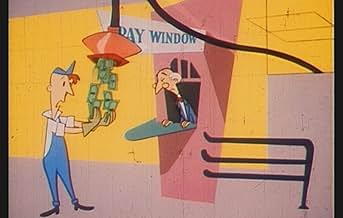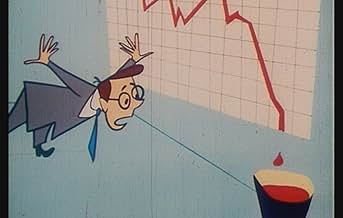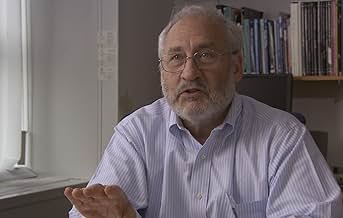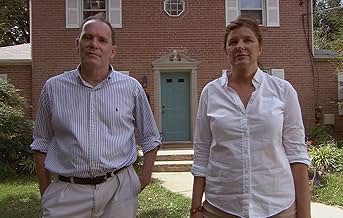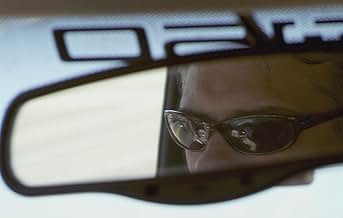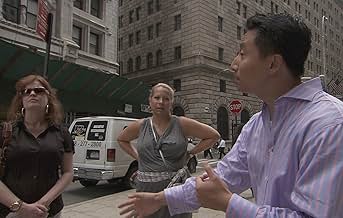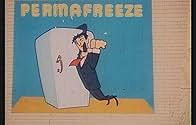Ajouter une intrigue dans votre langueAn examination of the causes of the economic crisis of 2008.An examination of the causes of the economic crisis of 2008.An examination of the causes of the economic crisis of 2008.
- Récompenses
- 1 nomination au total
Avis à la une
4 is a generous rating.
This documentary spends too much time on inequity of pay. Frankly, if all pay increases, we don't care if someone else makes more.
The housing index adjusted for inflation from 1890 was interesting.
They pulled out tiny bits of Allen Greenspans congressional inquiry to make him look bad. They used it to cast doubt on capitalism without justifying or explaining what the actual failure was that caused the crisis.
Banks loaned to people who should never have qualified for the loans. Yes. But why!? Banks would never do that because it puts them at risk. Underwriters would never do this if they were free to make their best decisions.
This documentary makes it look like it's the banks who cooked up this idea to lend money to people without verifying income. That's false. Bill Clinton signed law requiring lending without checking. They wanted to NOT DiSCRIMINATE based on INCOME That is just stupid. Banks simply complied and then figured out a way to sell the unvetted loans... risk mitigation. It's exactly what any business would do when the government forces them into business practices that do not make financial sense.
This had a lot of potential to enlighten about the 2008 fall, but it failed. I would not recommend this to my kids or anyone for a big picture of the 2008 banking crisis. It had agenda toward equity instead of focusing on the actual laws and resulting compliance that caused it.
This documentary spends too much time on inequity of pay. Frankly, if all pay increases, we don't care if someone else makes more.
The housing index adjusted for inflation from 1890 was interesting.
They pulled out tiny bits of Allen Greenspans congressional inquiry to make him look bad. They used it to cast doubt on capitalism without justifying or explaining what the actual failure was that caused the crisis.
Banks loaned to people who should never have qualified for the loans. Yes. But why!? Banks would never do that because it puts them at risk. Underwriters would never do this if they were free to make their best decisions.
This documentary makes it look like it's the banks who cooked up this idea to lend money to people without verifying income. That's false. Bill Clinton signed law requiring lending without checking. They wanted to NOT DiSCRIMINATE based on INCOME That is just stupid. Banks simply complied and then figured out a way to sell the unvetted loans... risk mitigation. It's exactly what any business would do when the government forces them into business practices that do not make financial sense.
This had a lot of potential to enlighten about the 2008 fall, but it failed. I would not recommend this to my kids or anyone for a big picture of the 2008 banking crisis. It had agenda toward equity instead of focusing on the actual laws and resulting compliance that caused it.
Only 2 reviews for this remarkable film? I leave the spoiler box unchecked, but really, the film is a "spoiler" since it refers to the most recent crash, a veritable implosion of the global economy based partially on mortgage backed securities.
The film is British, so at the very least we have a fine mix of American and British academics in economics giving slightly different, but converging approaches to what happened.
I've seen a number of films on the crash (fictional and documentary), and this one is by far the best. The film is technical at times, but this is necessary. Nowadays, many of the actors involved in the financial sector are "financial engineers." The days of simplicity are long gone. It's all algorithms and computers now.
The film strikes a perfect balance between archival footage, expert discussion, and interviews with "real people" who were caught up in the real estate binge. And not all of those who bought houses were speculators, some just wanted a decent place to live, and maybe to use that decent place to consolidate debts.
The title "The Flaw" seems to have come from testimony given by Greenspan who referred to a flaw in his own ideology. The irony of this Randian admitting a problem with his ideology should not be taken for granted.
I walked away from this film wanting to watch it again. I hope more people will watch this film. This is not some kind of anti-capitalist diatribe. Instead the film methodically and subtly point out something we all know intuitively; capitalism as it presently functions cannot be sustained.
There are no simple answers. Only some terrifying questions. And by the way, nothing was solved by the bailouts that wasn't short term. Nothing.
The film is British, so at the very least we have a fine mix of American and British academics in economics giving slightly different, but converging approaches to what happened.
I've seen a number of films on the crash (fictional and documentary), and this one is by far the best. The film is technical at times, but this is necessary. Nowadays, many of the actors involved in the financial sector are "financial engineers." The days of simplicity are long gone. It's all algorithms and computers now.
The film strikes a perfect balance between archival footage, expert discussion, and interviews with "real people" who were caught up in the real estate binge. And not all of those who bought houses were speculators, some just wanted a decent place to live, and maybe to use that decent place to consolidate debts.
The title "The Flaw" seems to have come from testimony given by Greenspan who referred to a flaw in his own ideology. The irony of this Randian admitting a problem with his ideology should not be taken for granted.
I walked away from this film wanting to watch it again. I hope more people will watch this film. This is not some kind of anti-capitalist diatribe. Instead the film methodically and subtly point out something we all know intuitively; capitalism as it presently functions cannot be sustained.
There are no simple answers. Only some terrifying questions. And by the way, nothing was solved by the bailouts that wasn't short term. Nothing.
A rather mild and weak explanation of the way people were duped before the 2008 crash and the sheer uncaring criminality of the suffering caused to many ordinary people who lost their homes, jobs and much more. For a more robust examination of and explanation of what went on, watch The Big Short instead, it's more entertaining and enlightening.
An extremely interesting look at the problems associated with capitalism in America. This documentary goes hand in hand with Michael Moore's CAPITALISM: A LOVE STORY, although there's more of an emphasis on helping the viewer to understand technicalities (whereas Moore focused on showing the human side of the story).
I came out of it with a better grasp of Wall Street, the real estate market, boom and bust and consumer society in general, which is no mean feat. The voice over narration is well judged, the graphs extremely useful and there are no dull bits. The use of old cartoons and film clips adds comedy to a documentary you wouldn't think of as amusing. Recommended.
I came out of it with a better grasp of Wall Street, the real estate market, boom and bust and consumer society in general, which is no mean feat. The voice over narration is well judged, the graphs extremely useful and there are no dull bits. The use of old cartoons and film clips adds comedy to a documentary you wouldn't think of as amusing. Recommended.
Utterly fascinating and very well put together account of the true source of all that "bother" in 2008. Highly recommended. It would be wonderful to hope that we will learn lessons from this, but unfortunately human nature doesn't work like that. "Greed is good."
Le saviez-vous
- ConnexionsFeatures It's Everybody's Business (1954)
Meilleurs choix
Connectez-vous pour évaluer et suivre la liste de favoris afin de recevoir des recommandations personnalisées
- How long is The Flaw?Alimenté par Alexa
Détails
- Date de sortie
- Pays d’origine
- Site officiel
- Langue
- Voir plus de crédits d'entreprise sur IMDbPro
- Durée1 heure 18 minutes
- Couleur
Contribuer à cette page
Suggérer une modification ou ajouter du contenu manquant



